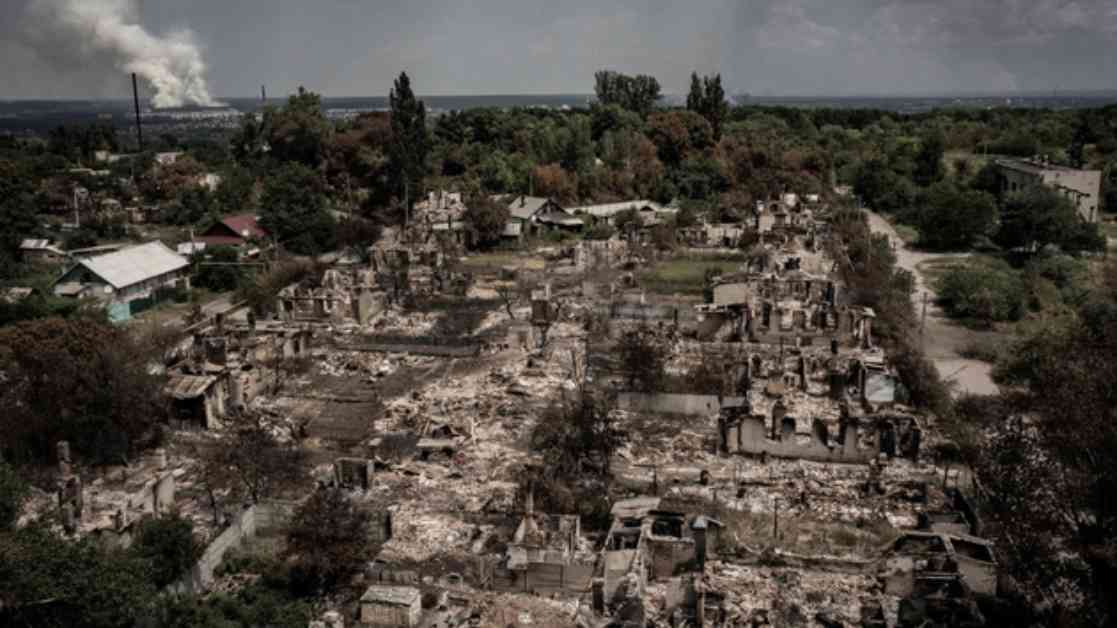Russia’s Transformation of Occupied Territories into Concentration Camps
As Ukrainians grapple with the aftermath of Russia’s invasion and occupation of their territories, a stark reality emerges: what was once thriving cities and communities have now been reduced to rubble, with millions of people living in conditions reminiscent of concentration camps. The international community’s call for Ukraine to abandon efforts to reclaim these territories only adds insult to injury, as the plight of those living under Russian occupation continues to worsen.
Destruction and Oblivion
The impact of the full-scale invasion in 2022 has been devastating, with cities like Volnovakha, Marinka, and Mariupol bearing the brunt of Russian artillery and airstrikes. These once vibrant urban centers now lie in ruins, with thousands dead and infrastructure destroyed beyond repair. Russian-installed authorities openly admit that some cities will never be rebuilt, leaving residents in limbo as they struggle to survive in a war-torn landscape.
In areas liberated by Ukrainian forces, the process of rebuilding and restoring essential services is ongoing, showcasing the stark contrast between Ukrainian efforts and Russian neglect. While Kyiv actively works to demine territories, restore infrastructure, and provide aid to those affected by the conflict, Russian-occupied regions languish in disrepair, lacking even basic utilities like heating and internet.
A Personal Perspective
Andrii, a pensioner from an occupied village in the Luhansk region, shares his story of life under Russian occupation. Despite the lack of electricity, limited communication options, and crumbling infrastructure, Andrii refuses to leave his home, showcasing the resilience and determination of those caught in the crossfire of war. His tale highlights the human cost of the conflict and the challenges faced by ordinary Ukrainians living under occupation.
Confiscation and Ethnocide
The systematic confiscation of property in occupied territories has left many residents with nothing, as Russian authorities seize homes, industrial enterprises, and agricultural land with impunity. Reports of housing being demolished and rebuilt for Russian citizens further underscore the ethnic cleansing and displacement taking place in these regions, as Ukrainians are forcibly removed to make way for a Russian population influx.
Viktor Kononenko, a Lieutenant General of the SBU, condemns Russia’s tactics as a form of ethnocide, aimed at erasing Ukrainian identity and replacing it with a militarized Russian presence. The deliberate efforts to prevent displaced residents from returning home and the militarization of occupied territories paint a grim picture of Russia’s long-term strategy in the region.
Conclusions
The transformation of occupied territories into concentration camps, coupled with the systematic displacement of Ukrainians and the militarization of these lands, poses a grave threat to European security. Without decisive action to reclaim these territories and reject Russia’s claims, the cycle of violence and oppression will continue, perpetuating a humanitarian crisis of epic proportions. It is imperative for the international community to stand in solidarity with Ukraine and support efforts to restore peace, stability, and sovereignty to the region.

















